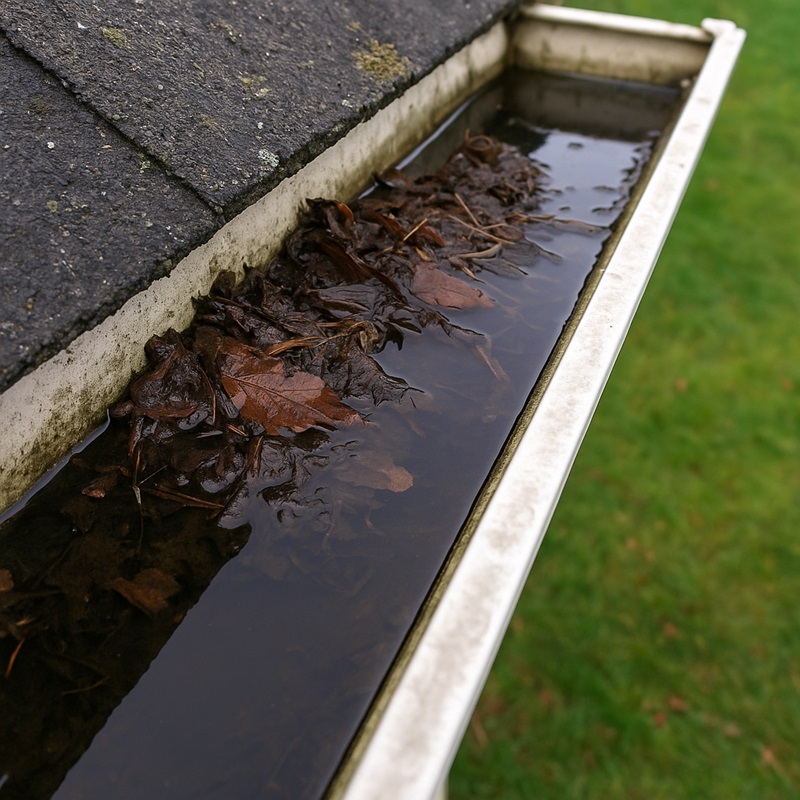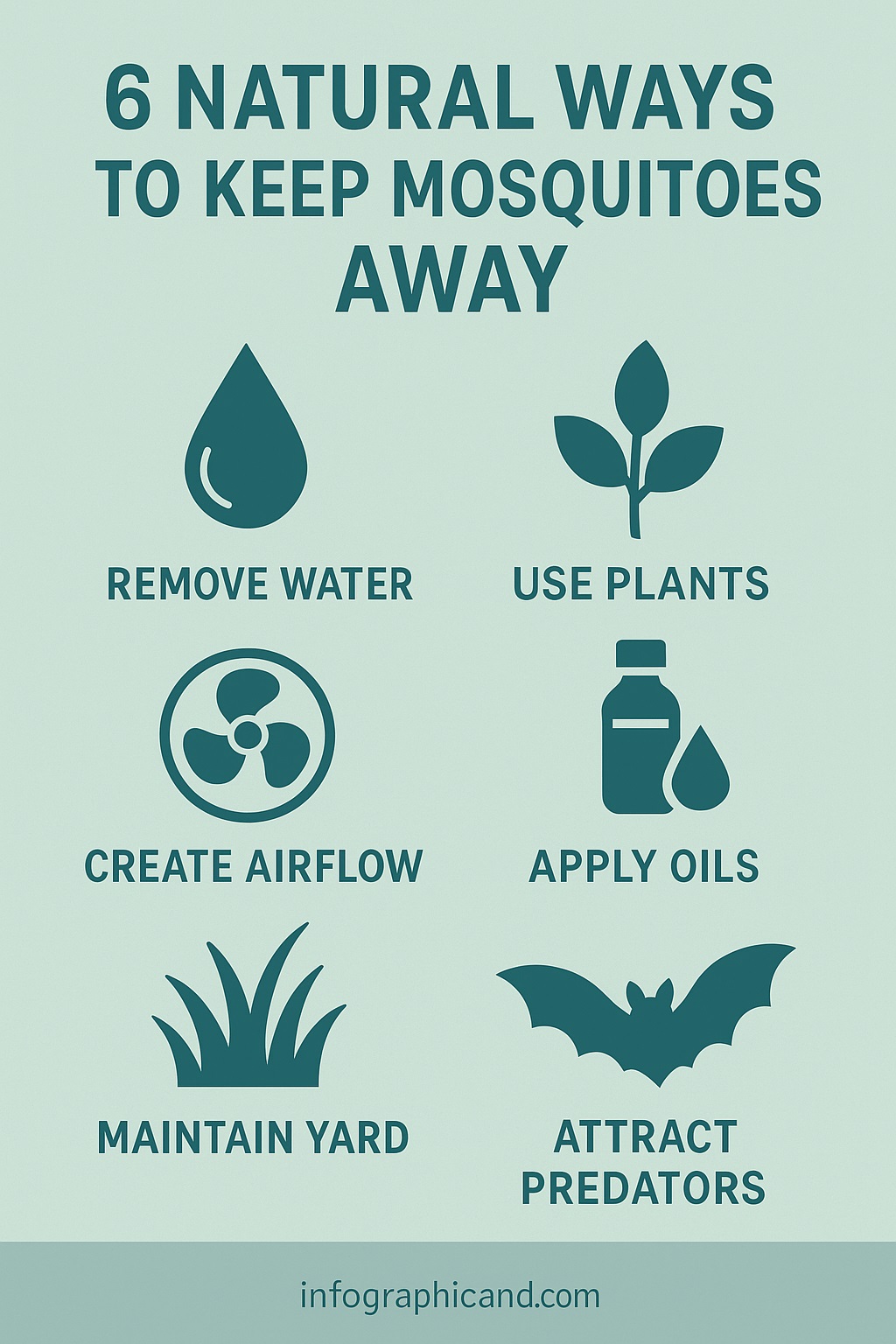As the weather warms up, the mosquito buzz is back and it’s not music to our ears. These little buggers are more than just a nuisance – they can spread diseases and turn a peaceful evening on the patio into an itchy, uncomfortable experience. While chemical repellents and sprays are everywhere, many homeowners are looking for natural alternatives that are safe for their families, pets and the environment. Good news is nature has several ways to keep mosquitoes away without using harsh chemicals.

1. Get Rid of Standing Water
According to a Mosquito Control public service agency near Sacramento Area, Sacramento-Yolo Mosquito Abatement District, the first step in natural mosquito control is to understand their breeding habits. Mosquitoes need standing water to complete their life cycle, they lay their eggs in even the smallest pools of stagnant water. A thorough inspection of your property will reveal many breeding sites you never knew existed. Check flower pot saucers, clogged gutters, bird baths, pet water bowls and any containers that collect rainwater. Even bottle caps and discarded cans can hold enough water for mosquitoes to reproduce.
Regular maintenance is key to this to work. Empty and refill pet water bowls and bird baths at least twice a week so mosquito larvae don’t have time to develop into adults. Clean your gutters regularly to prevent water accumulation and consider installing gutter guards to reduce debris buildup. For areas where some standing water is necessary like decorative ponds, introduce mosquito dunks containing Bacillus thuringiensis, a natural bacteria that kills mosquito larvae without harming other wildlife.
2. Use Natural Plant Repellents
Nature has given some plants compounds that mosquitoes hate, making landscaping one of the most beautiful and effective natural deterrents. Lavender with its nice smell and purple flowers has oils that mosquitoes don’t like and bees and butterflies love. Plant lavender around seating areas, walkways and near windows to create a natural barrier.
Citronella grass is the source of the citronella oil found in many candles and can be grown in large pots or directly in the garden. Its lemony smell is nice to humans but nasty to mosquitoes. Marigolds have pyrethrum, a compound used in many natural insect repellents. These bright flowers can be planted in garden beds or containers throughout your outdoor spaces.
Herbs serve a dual purpose in mosquito control, providing ingredients for your kitchen and repelling unwanted insects. Basil, rosemary, mint and catnip all have oils that mosquitoes don’t like. Catnip is especially effective, studies show it’s 10 times more effective than DEET in repelling mosquitoes. Plant these herbs near outdoor dining areas and crush the leaves occasionally to release the oils into the air.
3. Create Air Movement
Mosquitoes are weak fliers, they struggle to fly in even gentle breezes. Installing ceiling fans on covered porches, patios or gazebos creates an environment where mosquitoes can’t hover or land. The constant air movement disrupts their flight patterns and makes it hard for them to detect the carbon dioxide and body heat that attracts them to their targets.
For areas without electricity, consider battery operated or solar powered fans. Strategically placed oscillating fans can create overlapping zones of air movement, protecting larger outdoor spaces. This is especially effective during calm evenings when natural breezes are minimal, which is often when mosquito activity is at its peak.
4. Essential Oil Barriers
Essential oils are a concentrated, natural way to repel mosquitoes that can be applied around your home. Peppermint oil, eucalyptus oil, tea tree oil and lemon essential oil all have documented mosquito repelling properties. Mix 15-20 drops of your chosen essential oil with water in a spray bottle, add a small amount of dish soap to help the oil mix.
This can be sprayed on outdoor furniture, around doorways and windows and on non-sensitive plants. Reapply every few days or after rain as the oils will dissipate over time. You can also soak cotton balls in essential oils and place them in small containers around seating areas, replace weekly or when the scent fades.
For a more permanent solution consider diffusing essential oils in outdoor spaces using solar powered or battery operated diffusers for larger areas. This will provide continuous protection without the need to reapply.
5. Maintain Your Landscape
Proper yard maintenance plays a big role in natural mosquito control by removing hiding spots and breeding areas. Keep grass cut short and bushes trimmed, mosquitoes rest in tall grass and dense vegetation during the day. Remove fallen leaves, debris and organic matter that can hold water and provide shelter for mosquitoes.
Consider the layout of your landscape when making improvements. Make sure to grade areas where water pools after rain. Install French drains or improve soil composition in problem areas to prevent water accumulation. Prune tree branches and shrubs to improve air circulation, stagnant air in dense vegetation is perfect for mosquitoes to thrive.
6. Attract Natural Predators
Attracting natural mosquito predators to your yard is a biological and sustainable way to control. Bats are mosquito eating machines, one bat can eat thousands of mosquitoes in one night. Install bat houses in the right locations to encourage these beneficial mammals to set up colonies near your home.
Birds also eat a lot of mosquitoes and their larvae. Purple martins, swallows and other insectivorous birds can be attracted with nesting boxes and bird friendly landscaping. Maintain shallow water features with gentle movement to attract dragonflies, they are voracious mosquito eaters in both their larval and adult stage. Goldfish, koi or mosquito fish can be added to permanent water features like ponds or large water gardens. They will feed on mosquito larvae before they become adults. Even small water features can benefit from mosquito fish, which are often free from local mosquito control agencies.
conclusion
By using these six natural methods, you can make your yard less friendly to mosquitoes. At the same time, your outdoor space will stay safe and pleasant. The secret is to use more than one method and to keep them up over time. Natural control needs more care than chemicals, but it protects your health, your family, and nature. With steady effort, you can enjoy calm, mosquito-free evenings outside.





